I don't know how the proprietors of Finepuer.com found out (i) my identity and (ii) my work address, but I'm glad that they did, because they sent me a little gift in time for Christmas.
Perhaps about 5cm square. In non-metric units, that's about 1/4023rds of an Imperial Furlong
This is a tiny little fangcha [approx. "fung-cha", or "square tea"], weighing just 100g. It's about the size of a large matchbox or two. The packaging suggests that this is an old-fashioned Menghai Tea Company cake, not of the Dayi variety, and that it was probably made for export.
Pu'er Fangcha
It looks rather pretty. I'm not one for appreciating the various pictorial scenes that one sees occasionally carved into bricks of pu'er (usually bad shupu), but this little brick is most appealing. Perhaps unsurprisingly, the characters read "Pu'er fangcha", columnwise from right to left.
The ordering of Chinese characters always amuses me. Sometimes, as in modern newspapers, the print is by row, from left to right, as would be familiar to readers of English. Sometimes, as in books (especially older books), it is columnwise, usually from right to left (but sometimes not). Sometimes, as in various tourist sites, it is by row, from right to left. Perhaps this latter case is a degenerate example of columnwise right-to-left, in which the columns are of height one.
Sometimes the page order is from left to right, as familiar to Western readers; sometimes, one starts at the "end" of the book (in Western terms) and reads backwards.
Usually, when it's a 2x2 matrix, you can bet on columns from right to left. Most of the time. The odds are in your favour in making such a bet, at least.
Dotty
The rear face of the fangcha, pictured above, is a tic-tac-toe grid, with single- and double-nodule bumps in each cell.
Use very few leaves - the tight compression will leave you with a bitter brew, otherwise
You can tell that this is old-school pu'ercha because of the high degree of chopping and the high compression. This is particularly true in bricks, where the tea is often lower quality, and pressed together to allow all sorts of fannings to be used in the blend. It really is very hard work to remove a suitable quantity of leaves, as shown above.
Orange, solid, and very strong
Thankfully, the result is worthwhile: it is pure Menghai, being sharp, potent, and straightforward. You know what you're getting, with Menghai. It marches on, infusion after infusion, with little diminishment, and little change, as you would expect from a chopped Menghai. The years have been good to this little fellow, and it is adopting a sharp character of pine. Strong and continuous, I imagine that this cake will be worth playing with in more detail in... ten years or so, given the extraordinary compression of the leaves. I expect it to age slowly, but it has plenty of strength to develop.
Thanks again to Finepuer for the generous Christmas gift, even if I don't know how you found me.
Note to self for future reference: this fangcha sells for $34 at the company web-site, which might be a little high for my wallet.

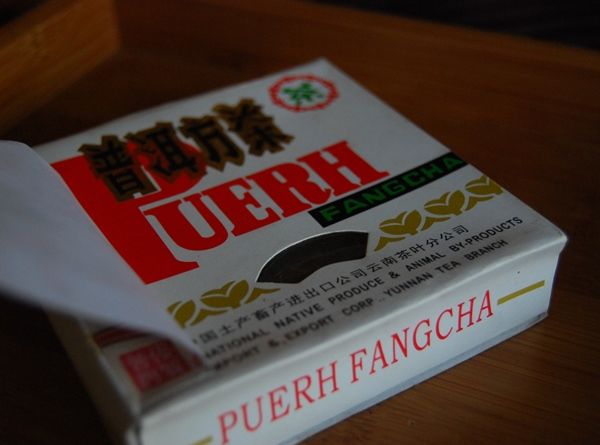
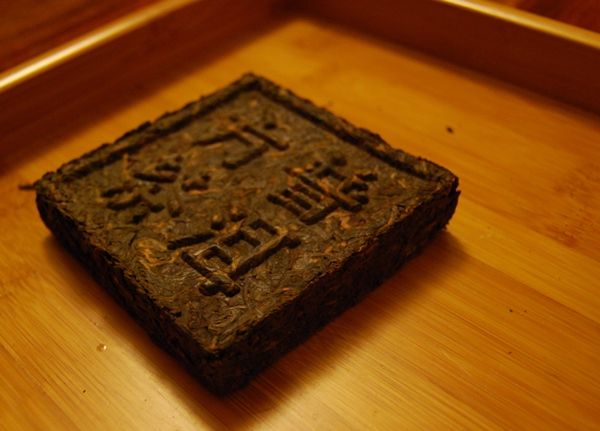
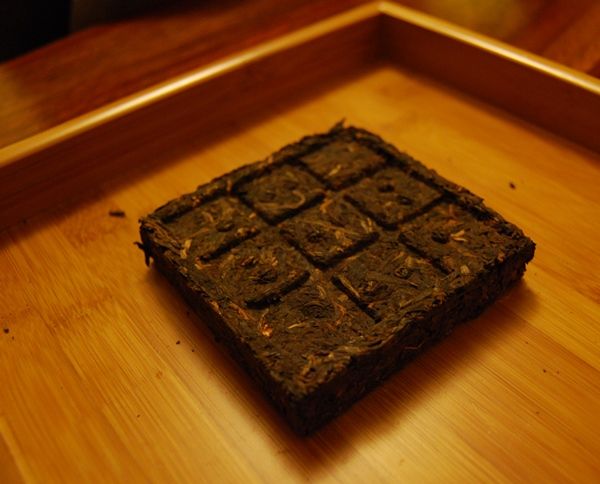
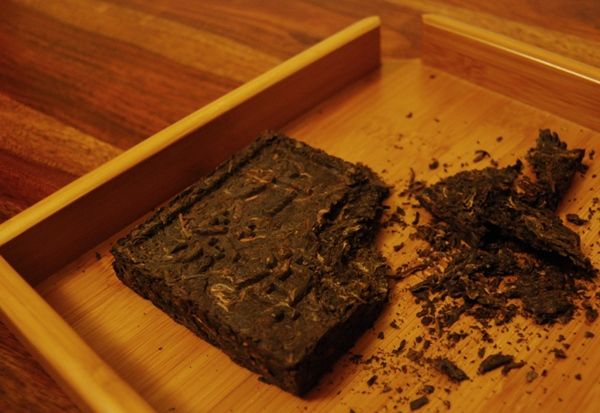
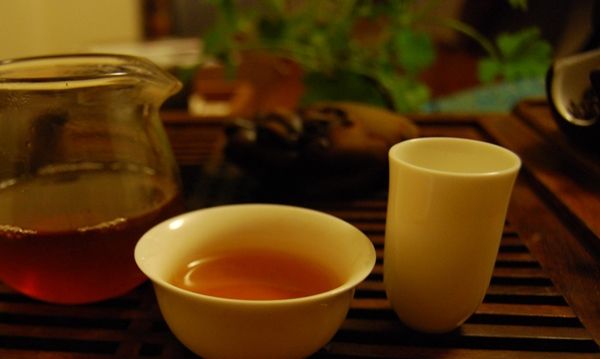
6 comments:
They sent me a little forty ml shui ping. Unfortunately the lid was broken during shipping. I have only ordered samples from them once.
GN
What a generous gesture, at least. :)
Toodlepip,
Hobbes
What a pretty little fangcha! Seriously compressed, it looks like you had to really have a go at it.
When all I've managed to release is another hard chunk of tea, and a bunch of dust... you know it's tough. :)
I don't know how my fingers survived that encounter...
Toodlepip,
Hobbes
How interesting, this looks very much like the "Old Bear" from white2tea...
I've not tried the Old Bear, but these are quite commonly-available pressings and w2t is very good at finding unlabelled treasure troves in warehouses.
Toodlepip,
Hobbes
Post a Comment